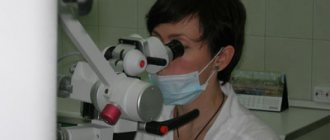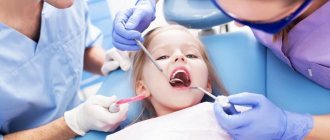Orthopedist, orthodontist, periodontist, dentist, paramedic, dentist... What do these definitions mean, what diseases are treated by doctors of these specializations, and which of them should you contact in a particular case? You will learn about all this by reading the information below.
Who is a dentist?
To become a dentist, you must graduate from medical school or college. A specialist with secondary medical education is trained to perform relatively simple dental procedures.
This does not mean that it is not able to cope with more complex cases, but its theoretical and practical basis is limited, and does not involve performing operations on teeth of the highest level of complexity.
Who is a dentist?
Dentist is a unifying definition applied to a dental specialist with higher education. (Stoma, stomatos means mouth in Greek, logos – teaching). To become a dentist, you need to graduate from a medical academy, institute or university.
The duration of their studies is at least 5 years. Along with dental diseases, future dentists study many medical sciences - biochemistry, physiology, therapy, histology, etc.
They are prepared not only theoretically, but also practically, having completed a one-year internship or a 2-year residency.
What is the difference between these concepts?
The difference between a dentist and a dentist is the level of training and the type of treatment they can perform.
The list of works provided for in the job description of a dentist includes:
- A dentist is a specialist in a wide range of diagnostics;
- treatment of relatively simple diseases of teeth and gums - gingivitis, stomatitis, caries and some others;
- removal of teeth not complicated by periodontitis;
- treatment of simple maxillofacial injuries.
- carrying out physical procedures;
- consultation regarding the choice of oral hygiene products;
- cleaning teeth from plaque and tartar, and some others.
In case of more serious dental pathologies - malocclusion, pulpitis, periodontitis, periodontal disease, lesions that have caused tooth destruction by more than 50%, and in other cases requiring the participation of a more trained specialist, the dentist gives the patient a referral to a dentist of the appropriate specialization.
A dentist is a general specialist. He has theoretical knowledge and practical skills sufficient to perform therapeutic, orthodontic, orthopedic and surgical operations.
Although, like a dentist, when faced with a particularly difficult case, he can refer the patient to a doctor of a narrow specialization.
Narrower specializations
- The large number and complexity of pathologies of the dentofacial apparatus, the constant improvement of existing treatment technologies and the development of new ones require in-depth, specific knowledge and skills from dentists.
- This feature has found its implementation in the concept of narrow specialization of dentists.
- Depending on the type of work performed, the following specializations of dentists differ:
- therapist;
- orthodontist;
- surgeon;
- orthopedist;
- hygienist;
- pediatric dentist.
Dentists often combine several specializations at once.
Dental surgeon
The prerogative of the profession of a dental surgeon is the following operations:
- Dental surgeons often treat diseases that are within the competence of dentists of other specialties: tooth extraction;
- treatment of neoplasms in the PR;
- elimination of TMJ dysfunctions, diseases of the salivary glands and trigeminal nerve;
- primary treatment of wounds and injuries of the mouth, neck, face;
- plastic surgery and reconstruction of jaw bones;
- operations on periodontal tissues (gingivectomy, gum pocket removal, soft tissue transplantations, gingivoplasty, plastic surgery of the oral vestibule and frenulum);
- correction of tooth position anomalies.
- implantation.
Dental surgeons often treat diseases that are within the competence of dentists of other specialties: phlegmon, periodontitis, sinusitis, periostitis, abscesses, osteomyelitis.
They also diagnose specific diseases, the symptoms of which may appear in the PR - syphilis, tuberculosis, actinomycosis.
Dentist-therapist
Typically, patients who seek help from a dentist first see a therapist.
- Dental therapist is the broadest specialization in dentistry.
- Typically, patients who seek help from a dentist first see a therapist, who in most cases is able to deal with their problem alone.
- The job description of a dental therapist provides for the following work:
- examination of the oral cavity;
- diagnosing;
- treatment of teeth (caries, pulpitis, etc.) and periodontal disease (gingivitis, periodontitis, periodontal disease, periodontitis);
- preparation of PR for prosthetics, its sanitation;
- teeth whitening and PG;
- preventive examination and advice on caring for RP.
When pathologies are identified that urgently require the participation of a specialist doctor, the therapist refers the patient to them.
Orthopedist
An orthopedist restores teeth using prosthetics
A doctor of this specialization is engaged in the restoration of dilapidated, missing or lost aesthetic teeth using prosthetics.
Orthopedist:
- takes impressions of teeth, from which the dental technician subsequently makes a prosthesis;
- tries on, adjusts and secures the prosthesis on the patient.
Prosthetic structures include crowns, bridges, inlays, veneers, and removable dentures.
Orthodontist
The orthodontist adjusts the position of teeth using removable and non-removable orthodontic devices
Orthodontics is a subsection of dentistry dedicated to dental anomalies.
The scope of practice of an orthodontist includes:
- prevention of deformations of individual teeth, dentition and jaws;
- normalization of occlusion;
- correction of jaw development;
- teeth straightening.
Correction of the position of teeth is carried out using removable and non-removable orthodontic devices - mouthguards, braces, braces.
Children's teeth at the stage of formation and growth are most successfully corrected. In adults, this process is much more difficult.
General dentist
The specialty “General Dentistry” was introduced by orders of the Ministry of Health No. 553 and 112. This specialty is of particular importance for rural areas, where it is desirable to have a specialist who can provide assistance in several clinical areas.
However, until now, due to a number of organizational, educational and legal problems, general practice in dentistry has not received proper development.
Children's
Children and adolescents under the age of 17 are patients of the pediatric dentist. A child's teeth have many differences from adult teeth.
- This includes the presence of baby teeth, the constant renewal and formation of the dentofacial apparatus, and the inability to use certain anesthetics for children.
- And the reaction of children to the dental chair creates increased problems.
- A dentist treating children must not only be able to distinguish pathology from the age norm, detect deviations in bite and tooth formation in time, but also be a bit of a psychologist.
Hygienist
The goal of a hygienist is to prevent dental diseases
- Dental hygienist is a relatively new specialization in dentistry.
- Its goal is the prevention of dental diseases, its field of activity is dental hygiene, proper dental care.
- A dental hygienist performs the following work:
- diagnosing RP diseases;
- professional teeth cleaning;
- disease prevention;
- training in proper dental care skills;
- educational activities (inspections in kindergartens, schools, institutions, organizations, enterprises).
Categories of dentists
Dentists are required to confirm their qualifications every 5 years
- Each dentist has a certain qualification category, which is an indicator of the level of his theoretical knowledge and practical skills.
- The procedure for assigning a qualification category is determined by order of the Ministry of Health of the Russian Federation.
- Dentists are required to confirm their qualifications every 5 years.
- Those who wish to improve their qualifications themselves must wait 3 years from the date of the last certification.
- Regulatory documents provide for three types of categories in ascending order:
- second (is basic);
- first;
- highest.
Requirements for various categories:
| Category | Requirements |
| Second | Work experience in the specialty for at least 3 years. Successful completion of certification. |
| First | Work experience in the specialty for at least 7 years. For a specialist with secondary education – at least 5 years. Successful completion of certification. |
| Higher | Work experience in the specialty for at least 10 years. For a specialist with secondary education – at least 7 years. Successful completion of certification. |
Popular questions
Here are some answers to some of the most common questions people have about specializing in dentistry:
Features of the work of a mid-level specialist
Based on the diploma received, the dentist, as mentioned earlier, can perform various dental procedures, but at the same time limits complex types of treatment, for example, treatment of pulpitis, prosthetics.
Patients should know that despite the promises made by the doctor, it is impossible to carry out complex medical procedures without the appropriate education and experience .
Only a good dentist with experience and professional knowledge can achieve a high-quality treatment result.
To improve his qualifications, after a certain time, the dentist must necessarily upgrade his category.
- A doctor with a second category - his work experience must be more than 3 years after receiving an education document. He must know the theory well and have at least some work experience.
- A doctor of the first category - he must have at least 7 years of work experience. He is obliged to periodically improve his knowledge in his field.
- A doctor with the highest category must have at least 10 years of experience in his specialty. This category corresponds to high theoretical and practical training.
Dentist and dentist: what is the difference between them and who a dentist can work in a clinic
Dentistry
The phrase dentist appeared in Russia in 1710. Before this, no one had treated the teeth; they were gradually destroyed . If a tooth started to hurt badly, it was simply pulled out. Thanks to Tsar Peter I, dental schools appeared. Only a hundred years later a decree was issued prohibiting practicing medicine without a diploma.
Gradually, dental faculties began to appear at universities. Dentistry began to develop rapidly as a science. There is a need to pay more attention to diseases of the oral cavity.
Already at that time, people needed specialists with extensive knowledge in this field of medicine. Over time, the phrase dentist has become less common. It has been replaced by the word dentist.
What's the difference?
In a modern college you can get an education and become a dentist after 3 years if you have a diploma. Such a specialist can work and treat teeth, but with some restrictions. For example, he will not be able to treat:
- pulpitis;
- correct bite;
- engage in complex prosthetics;
- do anesthesia.
In fact, many people do this in practice. Mainly in small settlements where there are no necessary specialists, the dentist is forced to provide assistance to people without having the right to do so by law. Essentially, he performs the functions of a dentist.
Abroad, a dentist is called a dentist . They receive education in secondary medical educational institutions. Few specialists abroad have a diploma of higher medical dental education. Mostly such specialists are found in large cities, and not in small towns.
Who is a dentist?
The main difference between a dentist and a dentist is the level of education. The dentist has more knowledge, experience and skills, as well as authority. To obtain a specialist diploma, he is forced to study for 5 years and undergo a residency for 2 years. In addition to knowledge in the field of dentistry, the future specialist also studies other diseases of all systems of the human body:
- anatomy;
- human physiology;
- histology;
- psychology;
- pharmacology;
- biological chemistry;
- bacteriology;
- healthcare organization, etc.
This is due to the fact that it is impossible to treat the oral cavity without studying the human body. The specialist must know how other organs are structured and how they are connected to each other . Psychology is also necessary, since people often come to appointments in a depressed and nervous state.
All graduates after graduating from medical university receive a diploma in general dentistry. Immediately after this, the graduate must choose a narrow specialization:
- dentist-therapist;
- dental surgeon;
- orthopedic dentist;
- orthodontist;
- pediatric dentist.
If you wish, you can master all specialties. This will take a long period of time and money. What do these specialists do?
Therapist and orthopedist
A dentist and dental therapist will be able to provide assistance in treating a diseased tooth or changing a filling. They will both be able to identify the cause, examine the oral cavity, and talk about the rules of dental care. As for dental disease, in this case the dentist will be in a difficult position.
Due to his qualifications, he will not be able to treat deep caries if there are problems with the gums, the tooth is severely damaged, or the pulp is inflamed. With such problems, he will refer the patient to a dentist-therapist .
It is recommended to visit this specialist once every six months to avoid dental diseases.
An orthopedist deals with dental prosthetics. It helps a patient who has lost a tooth to restore chewing function and not be embarrassed to smile. He is also sometimes called a prosthetic dentist. Before visiting an orthopedist, the patient first goes to a dental therapist and after treating the masticatory organs, he refers him to an orthopedist.
The difference between them is clear: one deals with treatment, the other with prosthetics. First you need to go to an appointment with a dental therapist and then an orthopedic dentist. This specialty is now in great demand. Such a specialist will be able to offer the patient several options for prosthetics , including the most modern ones.
Surgeon and orthodontist
- malocclusion;
- injury to the jaw or its joint;
- prepare the oral cavity for implantation or implantation;
- anomaly of the dentition.
These are quite complex manipulations that only such a doctor can perform. He will give recommendations for oral care after tooth extraction, and also tell you what needs to be done to make the wound heal faster.
Who are orthodontists? They are engaged in correcting the pathological structure of the jaw. Their work comes down to correcting the curvature of teeth, eliminating improper growth of the dentition, individual teeth, and reducing the distance between them. Nowadays popular braces are also installed by an orthodontist. They are well tolerated by patients because they do not injure the tissues of the oral cavity.
These specialists work with adults and children in the same way. Children are often brought to them with a bite problem , since in childhood this problem can be corrected quickly.
Who should go to the dentists?
There is no shortage of personnel in this market segment. On the contrary, this is a very in-demand profession. About 2.5 thousand dentists graduate from higher educational institutions every year. In principle, this is relatively little, but this indicator is quite enough to satisfy the demand for dental services.
It is important
The character of the specialist should be calm. Particularly important are balance, diligence, and attentiveness. The dentist must be as careful as possible, because he works with a miniature instrument.
Sociability and ability to pay attention. A qualified specialist must be tactful, regardless of who turned to him for help.
Specialization requires high vision and developed fine motor skills.
Pediatric dentist and dentist: differences
Dentistry in Russia originated under Peter I. Before that, teeth were not treated , but simply removed , and this could be done by any person not related to medicine. The Faculty of Dentistry in Russia opened in 1765. Nowadays, professionals provide oral therapy for children and adults. Among them are dentists and dentists. To understand which doctor you need to take your child to, you should find out what each of them treats .
Who is a dentist
Specialists who have received a diploma of secondary medical education can practice oral therapy. However, their activities are limited . Therefore, they often help the dentist carry out therapy. Children's dentists
can not:
- treat periodontal disease;
- correct bite;
- administer pain relief .
Without appropriate education, you cannot begin treatment for complex pathologies, since it is not always possible to prevent side effects. Therefore, for treatment, it is best to contact doctors who have graduated from a higher institution.
There are cases when patients live in small towns where only one dentist works. It should be contacted in case of acute pain for first aid. In severe cases, you should make an appointment with a dentist.
Dentists
in
children's clinics
they carry out examinations, make diagnoses and draw up the necessary schemes for the treatment of ailments. Often such specialists carry out health education work among the population. They tell you how to take care of your oral cavity.
Doctors with secondary education can remove a patient’s tooth if there is a slight inflammatory process. In Europe and the USA, the level of such a specialist corresponds to a dentist.
How to find a good pediatric dentist
Dental treatment should be done by professionals. To become a dentist you need to study at a medical school for five years. After this, you need to spend two years in residency. A future professional doctor must undergo an internship. Dentists are required to understand :
- dental system;
- physiology;
- human anatomy.
After graduating from university, they should choose a specialization. Doctors who treat children's teeth must not only understand dentistry, but also be able to find an approach to the child.
Doctors have a responsibility to stay up to date with the latest techniques. They must use gentle methods of therapy.
If you decide to find a good pediatric dentist
in
Moscow
, then you need to choose a trusted clinic and read reviews about the specialist’s work.
Features of working with a child of a professional with higher education
Children's health is made up of various factors, one of which is children's teeth. Pediatric dentistry is an independent branch in this field of medicine.
- Pediatric dentistry is the most complex, unlike adult dentistry. In this case, both the diseases themselves and the methods of therapy are completely different.
- Also, in this area of dentistry there are no adult infections.
- All procedures must take place under anesthesia. You can’t do anything without it, not even treat caries. The healthy psyche of a child is the main task for a doctor.
- Anesthesia should occur in such a way that children do not see or feel it; a good dentist knows how to do this.
- In children, various pathological processes in the mouth develop much faster.
For example, baby teeth quickly become infected with caries, unlike permanent teeth. In just a few months, a child’s caries can turn from a dark spot into a deep formation or even completely collapse. - When treating children's teeth, it is necessary to take into account the location of future permanent elements; this is not the case in adult dentistry.
- Not all doctors know how to work with children’s teeth, so the pediatrician has a separate specialty – “pediatric dentist.”
A pediatric dentist should be a sensitive and kind person who knows his job. He always knows that children are afraid of the dental office and tries to prevent this.
A self-respecting children's doctor will not allow small children to sit in line outside his office. He is able to captivate the child so that he completely forgets that he is in the dentist’s office.
What is the difference between a dentist and a pediatric dentist?
Many adults do not understand why a child needs to be taken for periodic examinations and treated by a pediatric dentist, and not by a regular dentist who provides medical care to adults. Few people know that these two specialties have significant differences.
The fact is that in childhood the development and course of dental pathologies has its own characteristics, and the attention of a dentist working with children is focused on them. In addition, there is a significant difference in the approach to working with adults and children.
Criteria for professionalism
A patient who knows practically nothing about this matter can evaluate the professionalism of a dentist using several criteria. They will help determine how correctly and efficiently the specialist performs his work.
First of all, rumors about a bad and a good doctor spread quickly. These are the ones you should pay attention to when choosing a dental clinic and specialist.
This is interesting: What is the best anesthesia for dental treatment during pregnancy?
Supporting documents
Licenses, diplomas, certificates and other documents confirming the qualifications of a doctor must be provided upon request.
Often, documents indicating the specialist’s achievements are framed and hung in the reception area. This way, every patient can easily familiarize themselves with them.
You should not stay long in a clinic where they refuse to provide any documentation. A good dentist takes pride in his specialization, professionalism, skill and success.
You should also pay attention to the last date of certificates of advanced training or a document on participation in a seminar. Dentists, like any doctors, are required to undergo various trainings, courses and attend various seminars every year.
This allows you to maintain your professionalism and keep abreast of the latest medical news, so that you can offer the patient several innovative and classic options for solving his problem.
Initial consultation
Going to the dentist is always an exciting step. At the first consultation, the specialist establishes a trusting relationship with the client and inquires about the general state of health.
When the doctor sees that the patient is very worried, he will definitely explain clearly how the treatment will be carried out, what it will require, and how painless the process will be.
A dentist from God must be tolerant, attentive, and hospitable. These qualities allow you to establish a trusting relationship with the patient, especially if a child comes for treatment.
Also, a dentist must have a number of qualities that indicate his professionalism. First of all, he carefully listens to all the patient’s complaints without interrupting him, conducts a thorough examination of the oral cavity, and the assistant records the examination results in the outpatient card.
In order to draw up a treatment plan , the patient is necessarily sent for diagnostics in order to identify certain contraindications, the degree of development of the disease and the presence of complications.
Treatment plan
Before starting treatment, the specialist must tell the patient several options, give advice on each of them, and determine the total cost.
The first consultation is considered an introductory one, when the doctor examines the oral cavity and develops a technique.
Before the inspection, the specialist must prepare all the necessary tools, wash his hands, put on gloves and treat them with an antiseptic solution. There must be a mask on the face.
Even despite how much education a specialist has and how many advanced training courses he has completed, the doctor always works with an assistant. The dentist should not be distracted by extraneous problems.
The specialist will definitely refer the patient for an x-ray. Only after studying the images can the doctor begin treatment.
When installing dentures or veneers, first of all, a complete sanitation of the oral cavity is carried out. This is necessary so that over time the teeth under already installed crowns do not begin to decay.
It is also important that the doctor must inform the patient about the need to make changes to the treatment plan. For example, when, after removing tartar, it is discovered that the nerve is damaged.
In addition, the absence of pain during treatment speaks about the professionalism of the doctor. If the doctor asks you to be patient a little, then you should change the clinic and the doctor.
Today, there are many painkillers that make the treatment procedure easier.
Job responsibilities
Responsibilities of a dentist:
- admit and treat patients;
- carry out preventive screenings;
- maintain medical records.
But each specialty of dentists has its own specialized responsibilities.
Dentist's responsibility
The dentist is responsible for:
- diagnosis and treatment;
- patient treatment plan;
- timeliness of therapy;
- the therapy process itself;
- providing clients with medicines;
- prescription and implementation of disease prevention;
- violation of labor discipline;
- inappropriate treatment of patients.
The physician is also responsible for the medical equipment, its suitability and effectiveness of use.
Before starting any manipulations, the dentist must clearly explain the treatment regimen to patients and clarify all the details in consultation with the patient. And if necessary, you can conclude an agreement in which all the details and purposes are specified.
History of the profession
The dentist profession arose in the distant past. The first mention of toothache was in the writings of Hippocrates. His proposals for eliminating this pain were very unusual - through knee iron. Many people at that time suffered from toothaches, and there were many deaths from ordinary flux. Over time, teachings about teeth and how to properly care for them began to evolve.
East 500 is the time when the first toothbrush appeared. And the 4th century is the time of the appearance of forceps designed to remove diseased teeth. And only 659 was the time when the first fillings appeared.
Russia learned this branch of knowledge when Peter the Great ruled. He decided to officially introduce the dentist profession. From that time on, dentistry began to develop rapidly.
St. Petersburg, 1981 - the time when the first educational institution opened, which trained future specialists in the field of dentistry. And after him, the same educational institutions began to open throughout the state.
Professional holiday
International Dentist Day is considered to be February 9 , the day of Saint Apollonia. After all, it was she who accepted martyrdom for Christ. She was tortured with forceps, which caused hellish pain to her teeth. But the girl withstood all the tests, and when they began to scare her with a fire, she herself decided to step into the flames. From now on, there is a belief that when you have a toothache, you can say the magic words: “Saint Apollonia,” and the pain will go away.
Ukraine began to celebrate this holiday since 1993. In honor of the holiday, free consultations and events aimed at preventing dental hygiene are held.
But dentists, even on their professional days, work tirelessly to help cope with toothache.
Advantages and disadvantages
Working as a dentist is quite profitable:
- demand for the profession in the labor market;
- high paying job;
- received medical education, which will always be useful in life;
- normal working day.
However, like any other profession, it also has negative sides:
- stressful situations;
- great responsibility;
- high cost of training;
- The monotony of work tires.
You should also take into account the following factor - it is quite difficult for highly impressionable people to get used to the specifics of work.
Requirements for the profession of dentist
The applicant is subject to the following requirements:
- you need to have a higher medical education;
- medical book and valid certificate;
- experience;
- know computer.
You will also need knowledge of the basics of psychology, which will be useful when communicating with patients.











